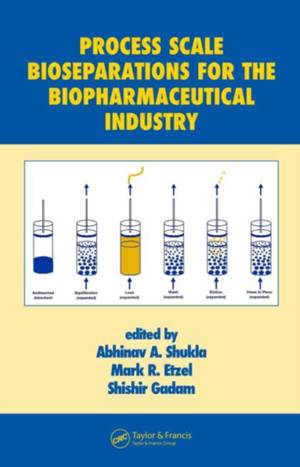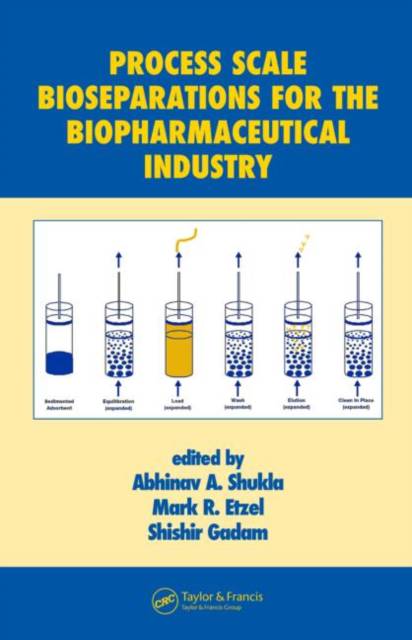
Nos liseuses Vivlio rencontrent actuellement des problèmes de synchronisation. Nous faisons tout notre possible pour résoudre ce problème le plus rapidement possible. Toutes nos excuses pour la gêne occasionnée !
- Retrait gratuit dans votre magasin Club
- 7.000.000 titres dans notre catalogue
- Payer en toute sécurité
- Toujours un magasin près de chez vous
Nos liseuses Vivlio rencontrent actuellement des problèmes de synchronisation. Nous faisons tout notre possible pour résoudre ce problème le plus rapidement possible. Toutes nos excuses pour la gêne occasionnée !
- Retrait gratuit dans votre magasin Club
- 7.000.0000 titres dans notre catalogue
- Payer en toute sécurité
- Toujours un magasin près de chez vous
Process Scale Bioseparations for the Biopharmaceutical Industry
321,45 €
+ 642 points
Description
The biopharmaceutical industry has become an increasingly important player in the global economy, and the success of these products depends on the development and implementation of cost-effective, robust and scaleable production processes. Bioseparations-also called downstream processing- can be a key source of competitive advantageto biopharmaceutical developers. Process Scale Bioseparations for the Biopharmaceutical Industry brings together scientific principles, empirical approaches, and practical considerations for designing industrial downstream bioprocesses for various classes of biomolecules.
Using clear language along with numerous case studies, examples, tables, flow charts, and schematics, the book presents perspectives from experienced professionals involved in purification processes and industrial downstream unit operations. The authors provide useful experimental design strategies and guidelines for developing application-specific process scale bioseparations. Chapter topics include harvest by centrifugation and filtration, expanded bed chromatography, protein refolding, modes of preparative chromatography, methodologies for resin screening, membrane chromatography, protein crystallization, viral filtration, ultrafiltration/diafiltration, implementing post-approval downstream process changes for an antibody product, and future trends. Ideal for both new and experienced scientists in the biopharmaceutical industry and students, Process Scale Bioseparations for the Biopharmaceutical Industry is a comprehensive resource for all topics relevant to industrial process development.Spécifications
Parties prenantes
- Editeur:
Contenu
- Nombre de pages :
- 575
- Langue:
- Anglais
- Collection :
Caractéristiques
- EAN:
- 9781574445176
- Date de parution :
- 07-07-06
- Format:
- Livre relié
- Format numérique:
- Genaaid
- Dimensions :
- 161 mm x 230 mm
- Poids :
- 920 g






